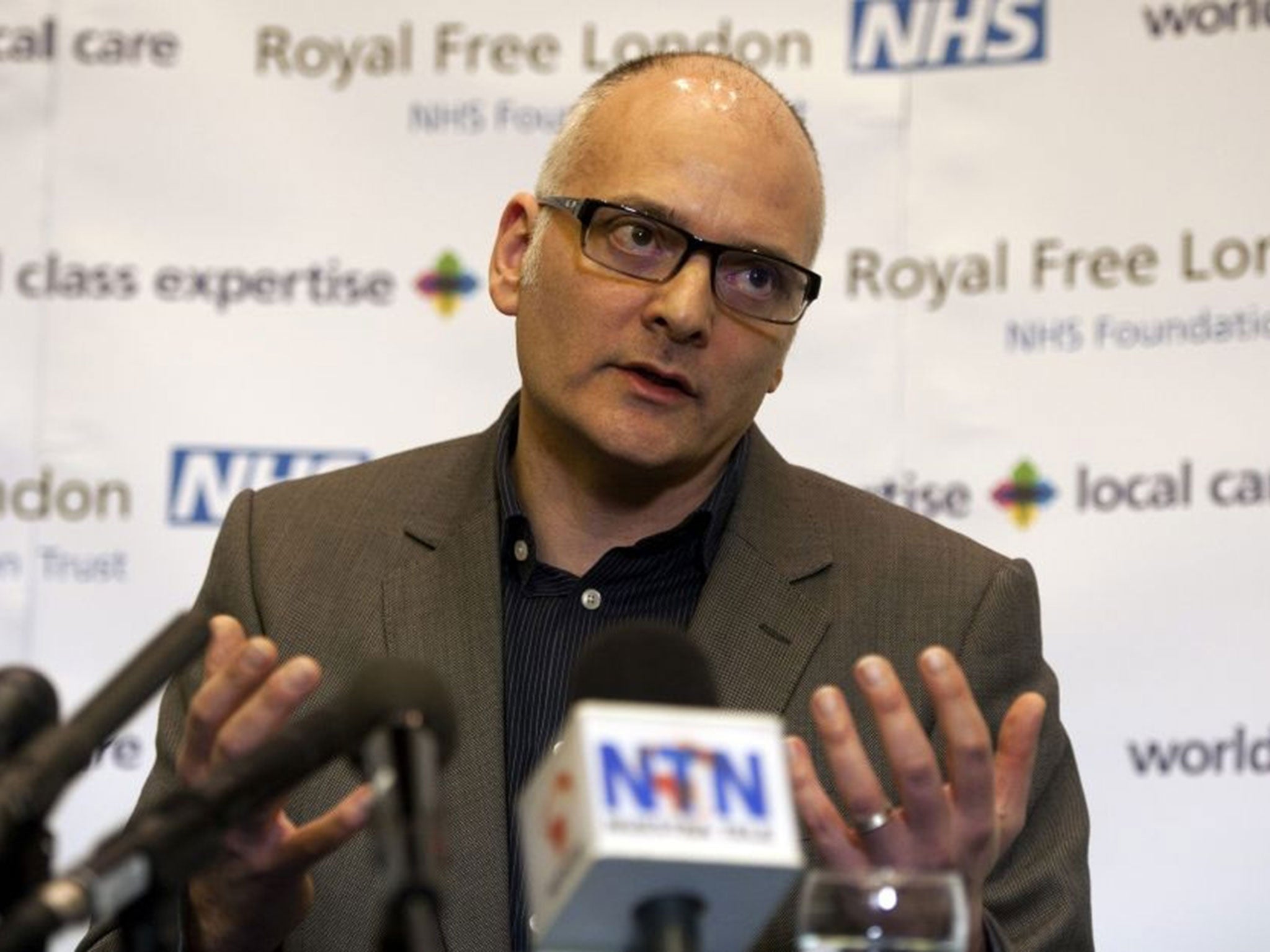Ebola in the UK: Infected nurse Pauline Cafferkey in 'critical' stage of treatment
Cafferkey caught Ebola while treating patients in Sierra Leone

Pauline Cafferkey, the British nurse who contracted Ebola in Sierra Leone, is entering a “critical” stage of her recovery.
The nurse from Glasgow is being treated with an experimental anti-viral drug and blood from a survivor of the virus inside a quarantine tent at the Royal Free Hospital in north London, her doctor has said.
Dr Michael Jacobs said Ms Cafferkey was being treated with convalescent plasma taken from the blood of a recovered patient and an experimental anti-viral drug which is “not proven to work”.
There were several stocks of plasma around Europe which would be considered in the treatment of Ms Cafferkey, Dr Jacobs explained.
He revealed that the experimental treatment does not involve ZMapp, which was used to treat fellow British volunteer nurse William Pooley - who has since recovered - because “there is none in the world at the moment”.
Dr Jacobs said that Ms Cafferkey treatment has gone smoothly and she has not experience any side-effects, and is “as well as we can hope for at this stage of the illness.”
He added she is sitting up, talking, reading, eating and drinking a little, and has also had face-to-face communication with her family through an intercom system.
Dr Jacobs said Ms Cafferkey was in an early phase of the disease which gave the hospital the "best opportunity to give her treatment".
"At the moment, we don't know what the best treatment strategies are," he said. "That's why we're calling them experimental treatments."
“As we've explained to Pauline, we can't be as confident as we would like. There's obviously very good reason to believe it's going to help her, otherwise we wouldn't be using it at all, but we simply don't have enough information to know that's the case.”
"When the need arises, the various experts around Europe convene a conference, and decide the most appropriate plasma for the patient,” he said. "It's plasma from a patient who has survived from Ebola and is treated in Europe."
Mrs Cafferkey was working with 30 other medical volunteers sent to West Africa by the UK Government last month, and had been working with Save the Children at the Ebola Treatment Centre in Kerry Town, Sierra Leone.
On Sunday, Ms Cafferkey flew home from Heathrow to Glasgow, where she was tested for symptoms of the disease.
She was initially placed in isolation at a Glasgow hospital early on Monday after feeling feverish, before being transferred south on an RAF C-130 Hercules plane.
Officials are still attempting to trace all passengers who flew with Ms Cafferkey from Casablanca to Heathrow and Heathrow to Glasgow, with Public Health England stating it has so far spoken to a total of 85 as of yesterday.
The body has urged that the risk of ifenction is “extremely low”, but advised anyone who sat near Mrs Cafferkey, a total of 21 passengers, to take their temperatures twice a day until mid-January.
Additional reporting by PA
Join our commenting forum
Join thought-provoking conversations, follow other Independent readers and see their replies
Comments